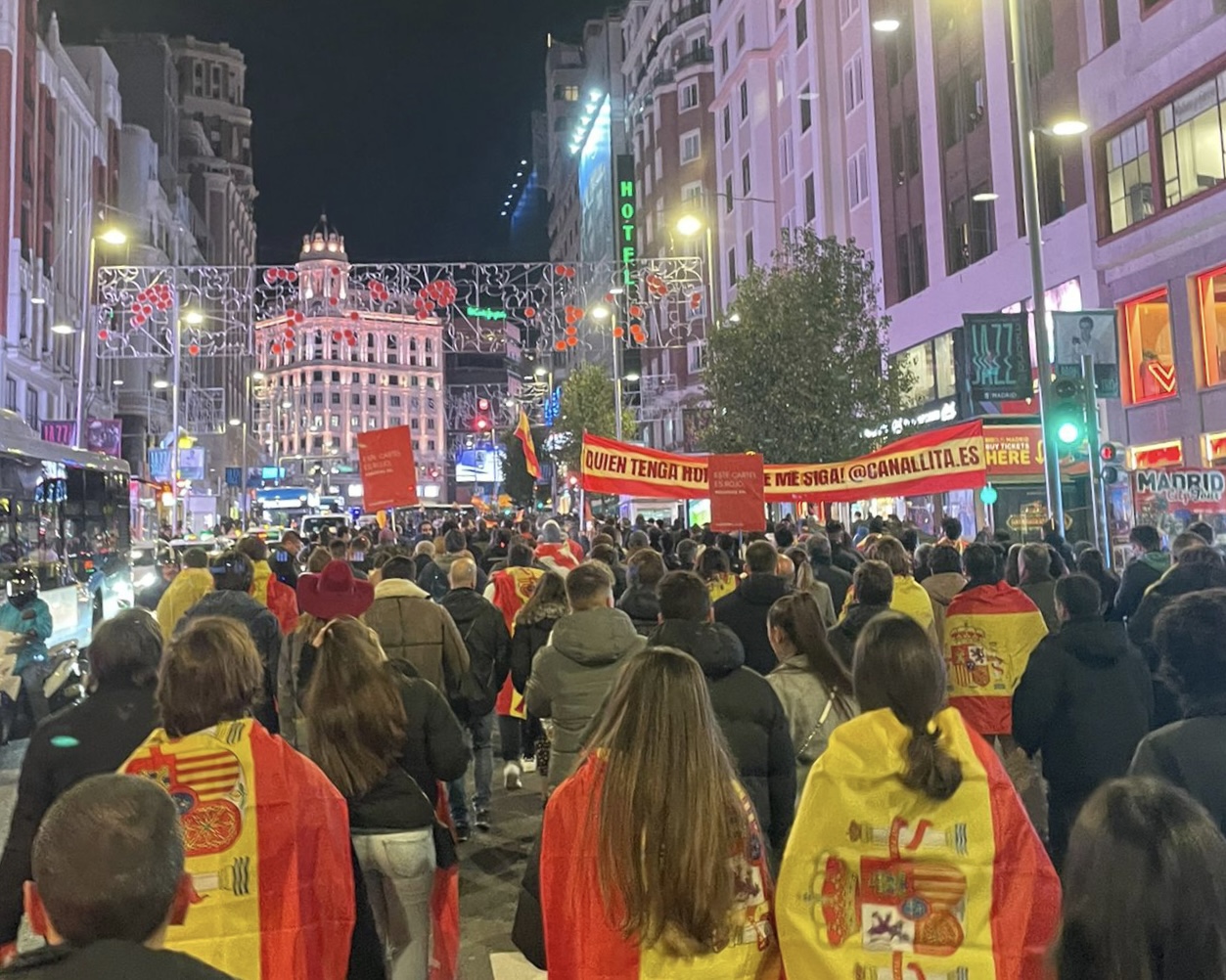
What is going on in Spain? The most numerous protests in the country’s history
Spain is in a very complicated situation politically speaking. The PSOE, the socialist party that has governed Spain since 2018, has managed to return to government after months of uncertainty thanks to a political agreement with another party. People have taken to the streets for the past two weeks because of their discontent with this agreement being the most numerous protests in the country’s history.
The country’s conservative voters do not agree with the government, what is going on? If many Spaniards don’t understand what is going on in their country, how are people from abroad going to understand?
For this, Rodrigo Fernando Parlorio Lorenzo, a 20-year-old member of the PP, the opposition political party, talks about what is happening to understand why these protests are taking place.
What has happened to put Spain in this situation?
On July 23, 2023, the general elections of the Spanish state were held. In them, the Popular Party came out as the winner with 136 (in terms of seats of their party), followed by PSOE with 122, and then VOX being the third most voted party, with 33 seats.
The problem came when the conservative party realized that they could not govern with the seats they had in their favor, since minority parties such as Esquerra Republicana Catalana, Junts Per Catalunya, Bildu, PNV, etc. were reluctant to sign any pact with PP due to the “cordon sanitaire” they decided to make to Vox because they considered them fascists, sexists, racists, and a host of derogatory attributes towards their conservative ideology.
The Popular Party, despite having a simple majority, did not have an absolute majority, so being the most-voted party had not served for absolutely nothing. At the same time, I must say that in my opinion, the PP’s campaign was disastrous in terms of the objective they were seeking; from an external point of view, a clear attack on Vox was perceived, as well as a rapprochement with certain positions that in the past could be considered more socialist or left-wing ideologies.
Today there is a large part of the population that does not want to allow government decisions to fall into the hands of separatist or nationalist parties (Junts per Cataluña, ERC, Bildu, PNV), parties with a certain sympathy towards communist ideology (leaders of SUMAR) or the party with the most corruption in Europe (PSOE, with more than 3,200 million euros).
What is the amnesty law? What does it mean for Spain politically speaking?
The Amnesty Law is a still unofficial document that will allow the repeal and pardon of the conviction of all those political leaders who declared the independence of a territory belonging to the Spanish nation (Catalonia on October 1, 2017).
As a result of this incident, Catalan ultras groups began to form, which caused riots and material damage in the main Catalan cities during the months following October 1. In turn, it must be said that those convicted individuals promoted an illegitimate and illegal independence referendum, for which they committed several crimes for which they were convicted.
Politically speaking, the nation of Spain will be affected in terms of morale, unity, and separation of powers, since the judiciary is annulled due to this law. That is why many territories of the nation have protested due to the distinctive treatment given to the Catalan coup plotters, implying as a result of this law that there are first- and second-class autonomous communities, that the judiciary is annullable, and that minority parties will govern the nation with criminal records.
What do you think as an opposition militant that the PSOE has reached the presidency because of this political agreement?
Although it is legal to agree with any democratically voted party, my ethics do not conceive the dissolution of Spain or the importance given to certain parties of a nationalist and separatist nature.
Therefore, although I consider the Socialist Party as the winner of the elections (due to the pacts made), their only objective has been to govern Spain whatever the cost, so they have introduced certain positions and government partners with enough potential to destroy the Spain that flourished after the signing of the Constitution of 1978.
Why are numerous mass protests taking place? What do you think of them as an opposition activist?
The protests have come as a result of widespread discontent, both from voters and opponents of the PSOE (it is worth mentioning that, in the election campaign, this party said time and again that it was impossible to sign an amnesty law with the Catalans), since the former feel let down by voting for something different from the actions taken in recent weeks. At the same time, the latter considers it a crime against the nation to have sold out the government of the nation for mere partisan interests.
From my point of view the demonstrations are duly justified, and, although certain individuals have been observed in the demonstrations with a clear anti-constitutional and anti-democratic ideology (see certain national-socialist collectives that participated in demonstrations) I think they are a tiny part of all Spaniards dissatisfied with the rupture of the unity of Spain.
Ver esta publicación en Instagram
Text: Estela González Martínez
Photo: © Cristina Martínez González



